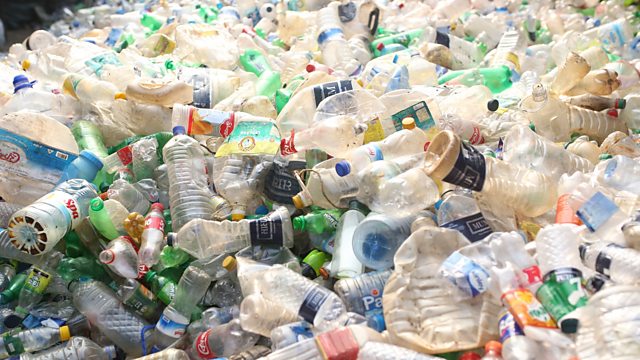Plastic recycling: Could genetically modified bacteria be the answer?
Scientists have come up with a new way to recycle mixed plastics using bacteria.
About 11 million tonnes of plastic waste flows into the ocean each year, according to the UN. Recycling plastics is one way to divert them from landfill and the ocean.
However, while the aim may be simple, the process is not necessarily so.Â
There are lots of different plastics, which means they must be separated and treated differently, with all the time, energy, and expense that entails.Â
A team of US scientists have come up with a way to process a mix of plastics. Their research has been published in the journal Science.Â
Gregg Beckham is senior research fellow at the national Renewable Energy Laboratory in Colorado, and is co-author of the paper.Â
He and his co-researchers wanted to come up with a solution that stopped the need to sort plastics into their different constituents before recycling them.
So, how did he and his co-researchers try to solve the problem of mixed plastics?
They are "tuning" a soil bacterium to produce a specific plastic product from many different ones.
(Photo: Plastic bottles are seen in a recycle factory in Dhaka, Bangladesh. Credit: Getty Images)
Duration:
This clip is from
More clips from Newshour
-
![]()
Chilean artist Paz Errazuriz on documenting the Pinochet regime
Duration: 06:55
-
![]()
'I either sleep or walk': World's oldest marathon runner dies
Duration: 04:25
-
![]()
Marina Tabassum on designing the 2025 Serpentine Pavilion
Duration: 06:37






